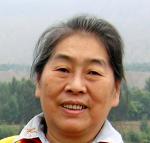
Minping Qian
- Born inChina
- Studied inChina
- Lives inChina
Interview
From Women Mathematicians around the World, a Gallery of Portraits
The School of Mathematics, Peking University,
100871 Beijing, PR China
qianmp at math.pku.edu.cn
Education
1962: Peking University. Dissertation Title: Prediction Theory on Homogeneous random fields.
Professional experience
since 2004: Emeritus Professor (All at Peking University)
1987–2004: Professor
1983–1987: Associate Prof.
1979–1983: Lecturer
1962–1979: Teacher Assistant
Questionnaire
How and when did you come to choose to do mathematics?
When I was at high school, I felt that I enjoyed mathematics and was good at it. Then I applied for an undergraduate student at the department of the mathematics and mechanics at Peking University, which was considered the top one in China that time. I was accepted, and spent 6 years there for my undergraduate study after which I was a faculty member until 2003, when I retired.
Were you then encouraged by your family, friends or by other people around you?
Yes, my father is a scientist, and he conveyed to me the impression that doing scientific research is interesting, noble, and worth devoting one’s whole life to. My mother appreciated and was proud of my father’s work. She strongly supported his work all her life. I remember that when I was very young, I would often wake up in the night and see my parents coming back home together from my father’s lab with boxes in which my mother had brought midnight snack to the lab for my father. Besides, my mother did not believe that girls should always become housewives and that scientific research is only reserved for men. She always claimed that girls could also do science. On the other hand, my elder brother who is 12 years older than me, is a very good mathematician who gave me guidance all the way through my career.
Did you come across obstacles in pursuing your career as a mathematician?
Yes.
If so, could you point out to some of them?
I really only came back to the mathematical work around 1977. But even when we could do maths, we found it extremely difficult to figure out what was going on in the western scientific world, since at that time China was pretty isolated from the world academic community. It would often take us several weeks or even months to get hold of an article or a book related to our work.
Do you think some of the possible difficulties are related to the socio-economic situation in your country?
Yes. Indeed, for historical reasons, almost all mathematicians in mainland China in my generation could not do much mathematics for some 10 years. Even after 1976, we were encouraged to do math, but everyday life was kind of difficult and we needed to spend quite a lot time to get food and deal with the necessities of life, washing and cleaning by hand, etc.
Or the fact that you are a woman?
Not much, in my case. But in China now, being a good woman mathematician can cause difficulties since
– it makes it hard to find a husband, because many boys want a housewife or at least a “basic housewife” who might have a job, but in no way do they want a companion on an equal footing,
– it makes it harder to find academic jobs in comparison with men.
– women generally take on more chores at home than men, related to family and children.
– the family usually does not encourage girls to doing mathematics.
In my case, I fortunately found a good husband, who has been my mate all along. We met as colleagues and work together. When we had a child, he really helped a lot. My strategy is to have a simple life. I do not to go for fad and focus on what I really care about.
In retrospect, are you happy to have chosen mathematics or do you have some regrets? What are for you the joys of mathematics? What are for you the hardships of mathematics?
I am very happy to have chosen mathematics and devoted my whole life to it and its applications, so much so that now I am still working with students as a volunteer, just for fun.
What would you recommend a young woman in your country wanting to start a career in mathematics?
Try to understand it and not get trapped in its logic. Try to gain more independent thinking and more self confidence. Be persistent as long as you feel you enjoy doing mathematics, otherwise it will not be a career suited for you.
Could you write a few lines in an understandable manner to non-experts, describing your topics of research and your favorite personal achievement in mathematics?
I have worked on stochastic processes and its application, especially to molecular biology and medicine.
I cooperate with others to find the essential conditions of a system, which could represent a living process or phenomenon, such as cells, a living body, and etc. We gave the mathematical definition of entropy production to describe how far the system is from reversibility. We found that time irreversibility, non-equilibrium, positive entropy production, existence of positive circulation along a loop circuit, are all equivalent for a system represented by a Markov chain, with either discrete or continuous time. For stochastic dynamics/Markov chains with multi-attractors/multi-recurrent classes.
We found a multi-scale hierarchical structure between attractors/recurrent classes for stochastic dynamical systems/exponentially perturbed by exponential “noise”. This result is closely related to multi-scale calculation for complex interacting particle systems.
